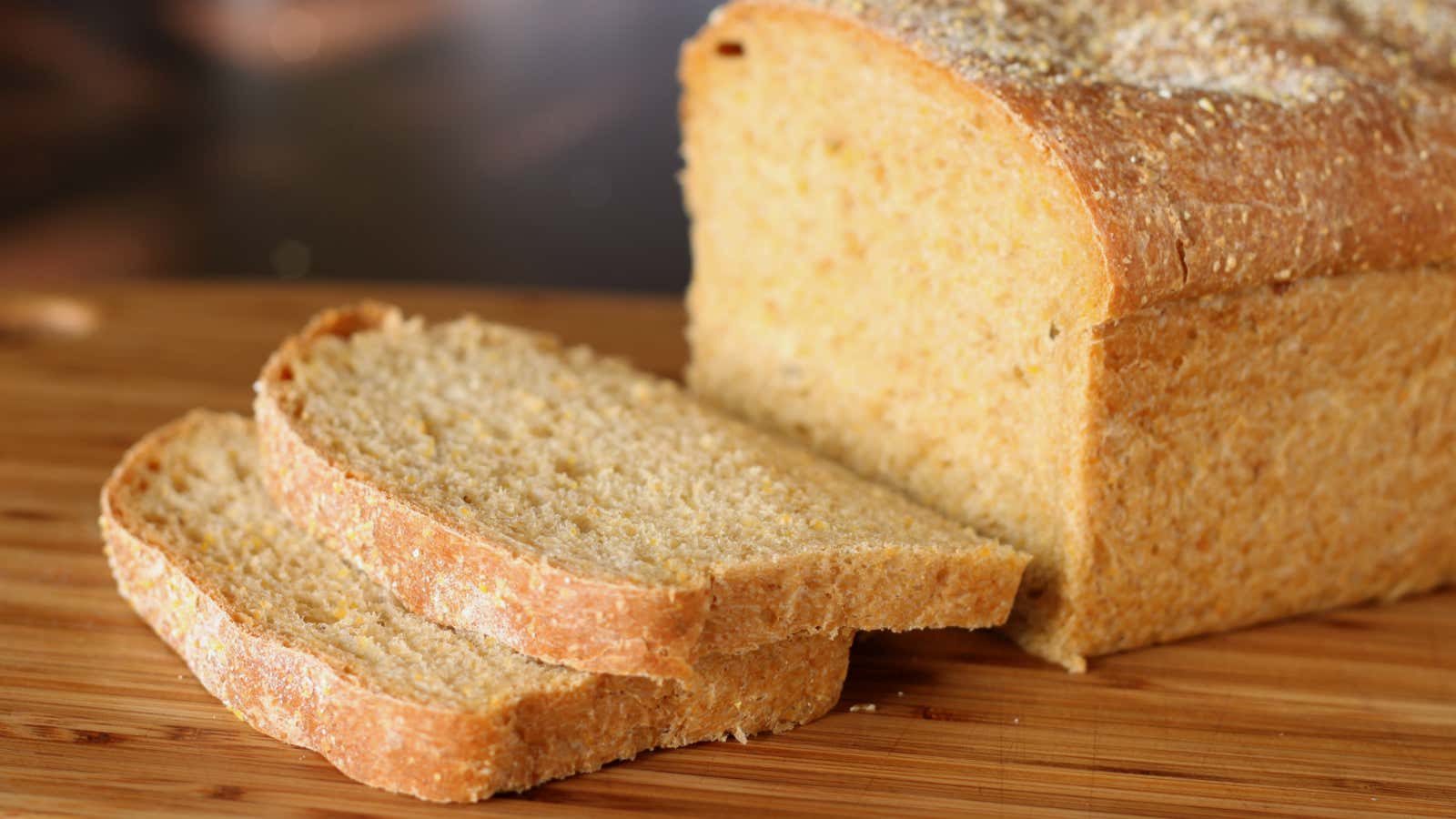India’s latest food safety controversy involves your morning loaf of bread.
On May 23, New Delhi’s Centre for Science and Environment (CSE), a research and advocacy organisation, released a study that found potassium bromate—a possible cancer-causing chemical—in 38 samples of popular bread brands in the capital city.
The study also found the presence of potassium iodate, a thyroid inducer, in these samples. Both chemicals are used as additives or thickening agents in flour to soften loaves of bread.
While the use of bromate is banned across some regions including the European Union, for its carcinogenic properties, the Food Safety and Standards Authority of India (FSSAI) currently allows 50 ppm (parts per million) of bromate to be used in bread.
On the basis of existing FSSAI regulations, large packaged food companies refuted claims made by the CSE study, arguing that their products contained permissible levels of the two chemicals.
The FSSAI, though, is now considering the removal of bromate from its list of permissible additives.
“A scientific panel had recommended removal of potassium bromate from the list of additives. So we have already decided to take it out from the list. Soon it will be notified,” FSSAI CEO Pawan Kumar Agarwal said on May 23. ”As far as potassium iodate is concerned, we are examining the evidence and soon a decision will be taken,” he added.
India’s health ministry is also probing the matter.
“We are seized of the matter. I have told my officials to report to me on an urgent basis. There is no need to panic. Very soon we will come out with the (probe) report,” health minister JP Nadda said.
So, is your bread safe to eat? Depends on who you ask.
Bromate, what?
The CSE’s findings reported the presence of these two chemicals in the range of 1.15-22.54 ppm (parts per million) across samples, which is significantly lower than the FSSAI’s prescribed limit.
The study found that common bread brands such as Perfect Bread, Harvest Gold and Britannia showed high average levels of either potassium bromate or iodate. Buns and pizza crusts from popular fast-food chains such as McDonald’s, KFC and Domino’s also tested positive for both chemicals, but these were at lower levels than those found in bread.
Through the 1980s and 90s, health groups and food regulatory bodies globally made recommendations to ban both potassium bromate and iodate citing sufficient evidence of their adverse effects on health.
For instance, potassium bromate—classified as a possible carcinogen by the International Agency for Research on Cancer (IARC)—is known to cause abdominal pain, diarrhoea, nausea, vomiting and kidney failure. Excessive intake of potassium iodate, on the other hand, could trigger thyroid disorders.
European countries and the UK were the first to heed the recommendations and banned the use of potassium bromate in 1990. Australia, New Zealand, Canada and China followed suit.
In India the limited presence of both chemicals is permitted by food authorities, at least in the raw material.
“Globally, potassium bromate was allowed to be used on the assumption that the bromate residues would not be present in the end product. This assumption failed across the world. Residues were being detected even after reducing the allowed limits of use and therefore, countries started banning it,” said Chandra Bhusan, CSE’s deputy director general. “Our study confirms that residues of potassium bromate are present in bread sold in India.”
Refuting claims
Despite CSE’s findings, the food industry is reluctant to back down.
Britannia Industries, India’s largest biscuit maker, flatly refuted claims of the study.
“Britannia would like to categorically state that it does not use potassium bromate or iodate as an ingredient in any of its bread recipes,” the company said in a statement. “All Britannia bread products are in 100% compliance with the existing food safety regulations as stipulated by FSSAI.”
Burger chain McDonald’s India also dismissed CSE’s claims as “baseless”.
“McDonald’s India does not use potassium bromate or potassium iodate in the flour and all other ingredients that goes into our buns. The claims made by CSE in their press release and report are completely baseless,” said Vikram Ogale, director, national supply chain and quality assurance at McDonald’s India, in an email response to Quartz.
Meanwhile, the All India Bread Manufacturers Association, a lobby group for the country’s top bread manufacturers, said it is yet to review the findings of the report.
On Tuesday (May 24) morning, shares of listed fast-food chains such as Jubilant FoodWorks, which runs the Domino’s chain of restaurants in India and Westlife Development, that operates McDonald’s in West and South India, slumped by 12 % and 9 % respectively, on the BSE.
The brouhaha over bread comes a year after laboratory reports alleged the presence of monosodium glutamate, or MSG, in Maggi, the noodle brand owned by Nestle India. The fiasco put the spotlight on regulating permissible ingredients in packaged foods and the efficacy of lab reports in India.
